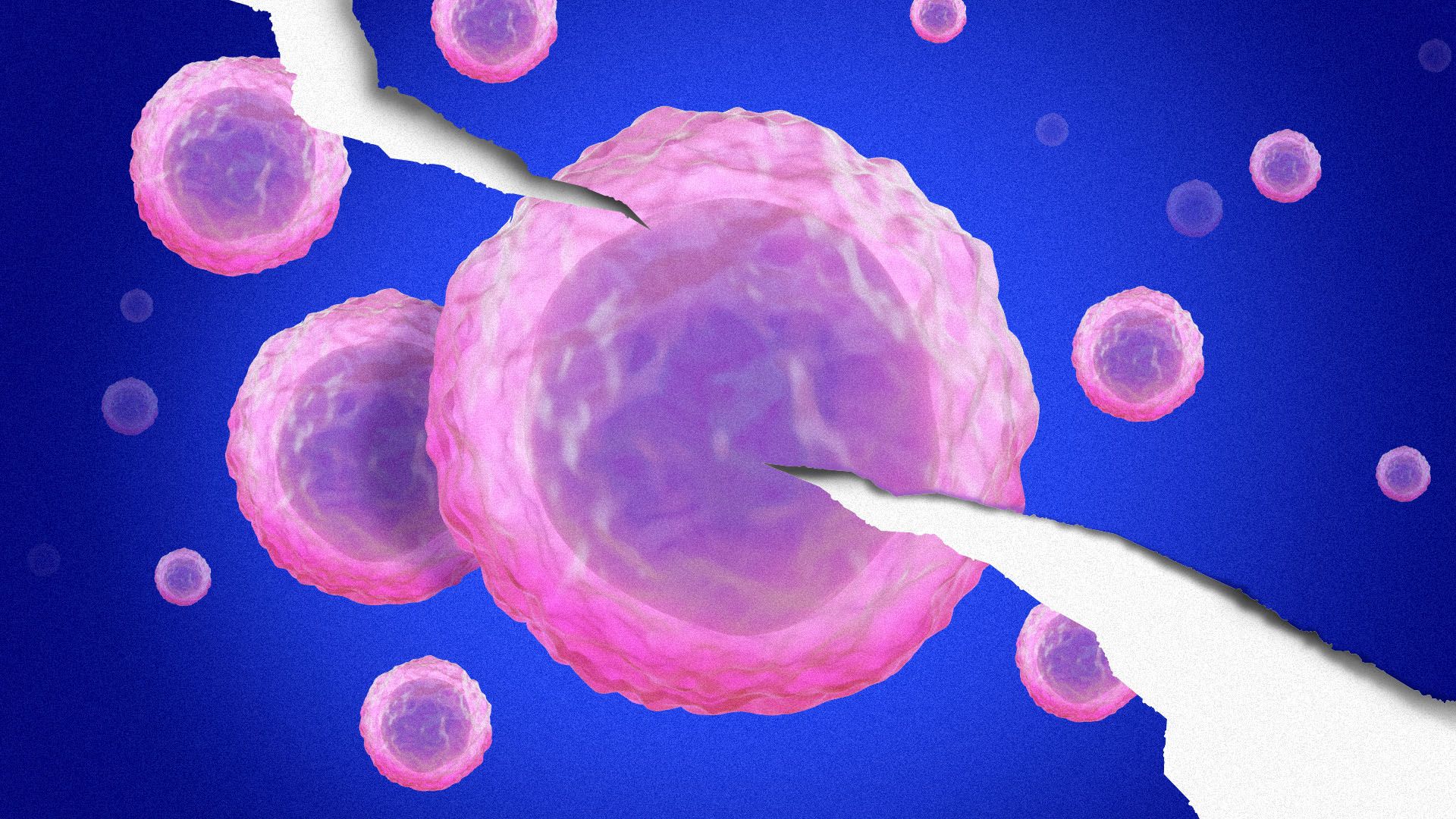Measles can give your immune system amnesia
Add Axios as your preferred source to
see more of our stories on Google.

Illustration: Sarah Grillo/Axios
During the two to three years after a measles infection, a person can have immune system "amnesia," where the system appears to forget the prior illnesses and vaccinations that triggered immunity, making the person vulnerable to sometimes-deadly infections.
Why it matters: A number of people are deliberately not getting vaccinated, with some fighting new restrictions on exemptions. But, two new papers provide more evidence that getting measles appears to have longer-term implications than originally thought.
"Measles is a serious illness. A lot of anti-vaccination people say that it's not serious ... these papers tells us that, yes, you may recover from measles but your protection to any other microbe or virus is clearly depleted."— Anthony Fauci, head of the National Institute of Allergy and Infectious Diseases, tells Axios
Background: Measles is a highly contagious disease that is 97% preventable after two vaccinations. A recent intensification of both vaccine hesitancy and the anti-vaccination movement has led to an increase in global infections.
- In the U.S., from Jan. 1–Oct. 3, there were 1,250 cases of measles — the highest number since 1992, per the Centers for Disease Control and Prevention.
- There remain some cases in New York, but the overall epidemic is considered to be over and the U.S. has retained the measles elimination status it had since 2001, Fauci says.
- "We have known for decades in clinical [observations] that when a person gets the measles infection, there is a temporary suppression of their antibodies," but the biology behind this was unknown, Fauci says.
- In 2015, there was a study in Science using population and epidemiological data that showed measles often left children susceptible to other diseases for up to three years.
Driving the news: Two studies out Thursday detail how the virus lowers the white blood cell count for a long period of time in some people.
- Both studies tested blood samples from 77 unvaccinated children, ages 4 to 17, in an Orthodox Protestant community in the Netherlands.
- They examined the blood before and after the children contracted the measles virus.
- They also tested their theories on different animals.
The study in Science Immunology looked at whether the antibodies, particularly in B lymphocytes, changed in the body after a measles infection.
- This team sequenced the genes of children's immune memory cells before infection and again 40 days after the start of the measles rash.
- They found that after infection, there was incomplete stocking of B cells, which led to a compromised immune memory for non-measles infections (but the cells had a strong response against the reintroduction of measles).
- They tested this on ferrets, who had been vaccinated against the flu, and found the ones who contracted measles became less immune and had more severe symptoms when exposed to the flu infection, compared to the ones who didn't get measles.
The study in Science used a powerful pathogen antibody profiling tool called VirScan to examine the blood before and after measles infection, targeting an immune memory cell called long-lived plasma cell (LLPC).
- They were surprised by the "sheer magnitude and range of the loss of the long-term immune antibody memory," study co-authors Michael Mina and Stephen Elledge wrote to Axios.
- "We had envisioned that there would be loss of antibodies. However, we did not think that in some children the loss would exceed 50% of their overall pre-existing immune memory. We found a range of antibody deletion of 11%-73% and the remaining detectible antibodies had reduced levels," they said.
- The problem with losing LLPCs, they said, is that they can't replicate, so measles is potentially "removing a crucial weapon."
- They also found that whatever illnesses were circulating in the region after measles subsided was most likely the one the child picked up.
- While the team only tested the children a couple months after measles infection, they did test macaques for a longer period of time, and found "at 5 months after measles, 50% of the antibodies were still missing with no hint of returning. Thus this appears to be a long-lasting effect, possibly permanent until reinfection or vaccination," the authors said.
On the other side: These findings could benefit from research in autoimmune diseases, where clinicians want to suppress the immune system, Fauci points out.
Go deeper:
